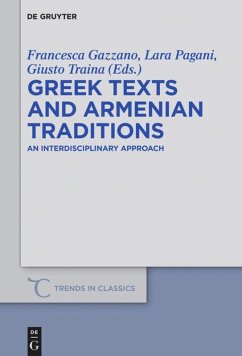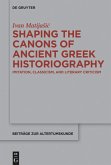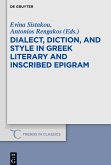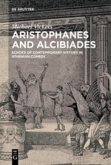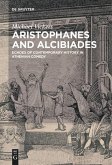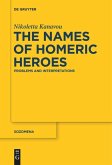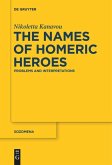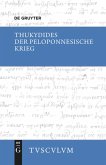An interdisciplinary approach, crucial as it is in most fields of research, proves itself to be unescapable in the study of interactions between the ancient Armenian and Greek worlds and literatures.
The volume arises from such an awareness and collects papers presented in a conference which has been organized in 2013 at the University of Genova, thanks to a cooperation with the Université Paris-Sorbonne, following in the footsteps of a tradition inaugurated by Giancarlo Bolognesi in the years '80 and '90. The subject is explored from many points of view: the topic of Armenian translations of Greek texts - with considerations of a methodological nature and the discussion of case-studies -, aspects which pertain to the historical context and the historiographical sources, the wide theme of the Armenian reception of Biblical, Christian and Byzantine literature, and finally philological, linguistic and lexical problems.
The aim of this kind of research is to exploit the cooperation among classical philologists, linguists and Armenologists, in order to face the challenge of investigating a subject which requires many different competences.
The volume arises from such an awareness and collects papers presented in a conference which has been organized in 2013 at the University of Genova, thanks to a cooperation with the Université Paris-Sorbonne, following in the footsteps of a tradition inaugurated by Giancarlo Bolognesi in the years '80 and '90. The subject is explored from many points of view: the topic of Armenian translations of Greek texts - with considerations of a methodological nature and the discussion of case-studies -, aspects which pertain to the historical context and the historiographical sources, the wide theme of the Armenian reception of Biblical, Christian and Byzantine literature, and finally philological, linguistic and lexical problems.
The aim of this kind of research is to exploit the cooperation among classical philologists, linguists and Armenologists, in order to face the challenge of investigating a subject which requires many different competences.
"Thanks to the wide range of issues discussed in the papers, this book constitutes useful reading not only for Armenologists, but also for Classicists and Byzantinists, and for historians of the Roman and Byzantine Empire as well."
Emanuele Zimbardi in: Medioevo Greco 18 (2018), 462-466
"Setting up paradigms for this vast research area and providing well-selected case studies, it adds a must-have to libraries of classics and related fields."
Stephanie Pambakian in: Museum Helveticum 76.2 (2019), 268-269
Emanuele Zimbardi in: Medioevo Greco 18 (2018), 462-466
"Setting up paradigms for this vast research area and providing well-selected case studies, it adds a must-have to libraries of classics and related fields."
Stephanie Pambakian in: Museum Helveticum 76.2 (2019), 268-269

